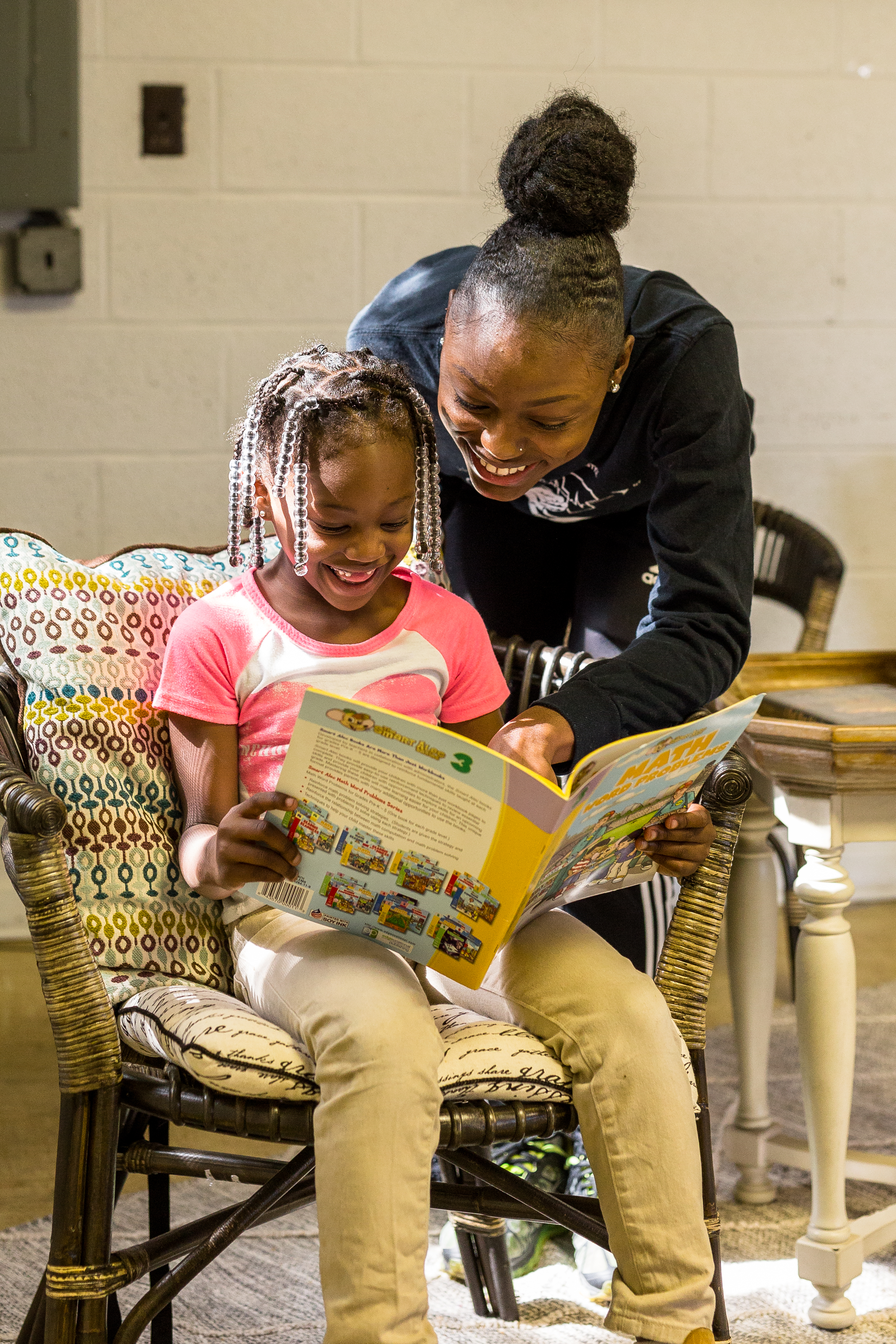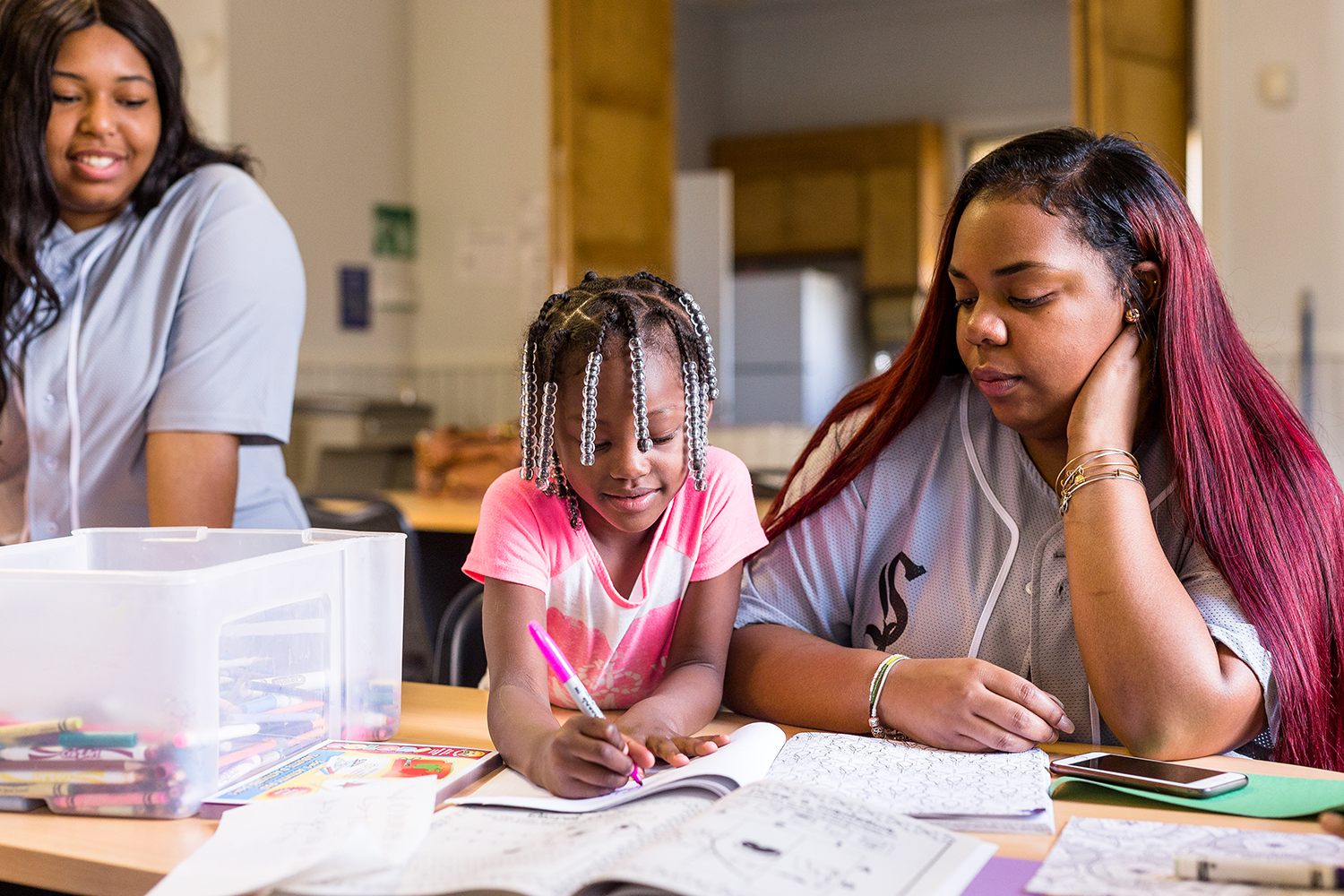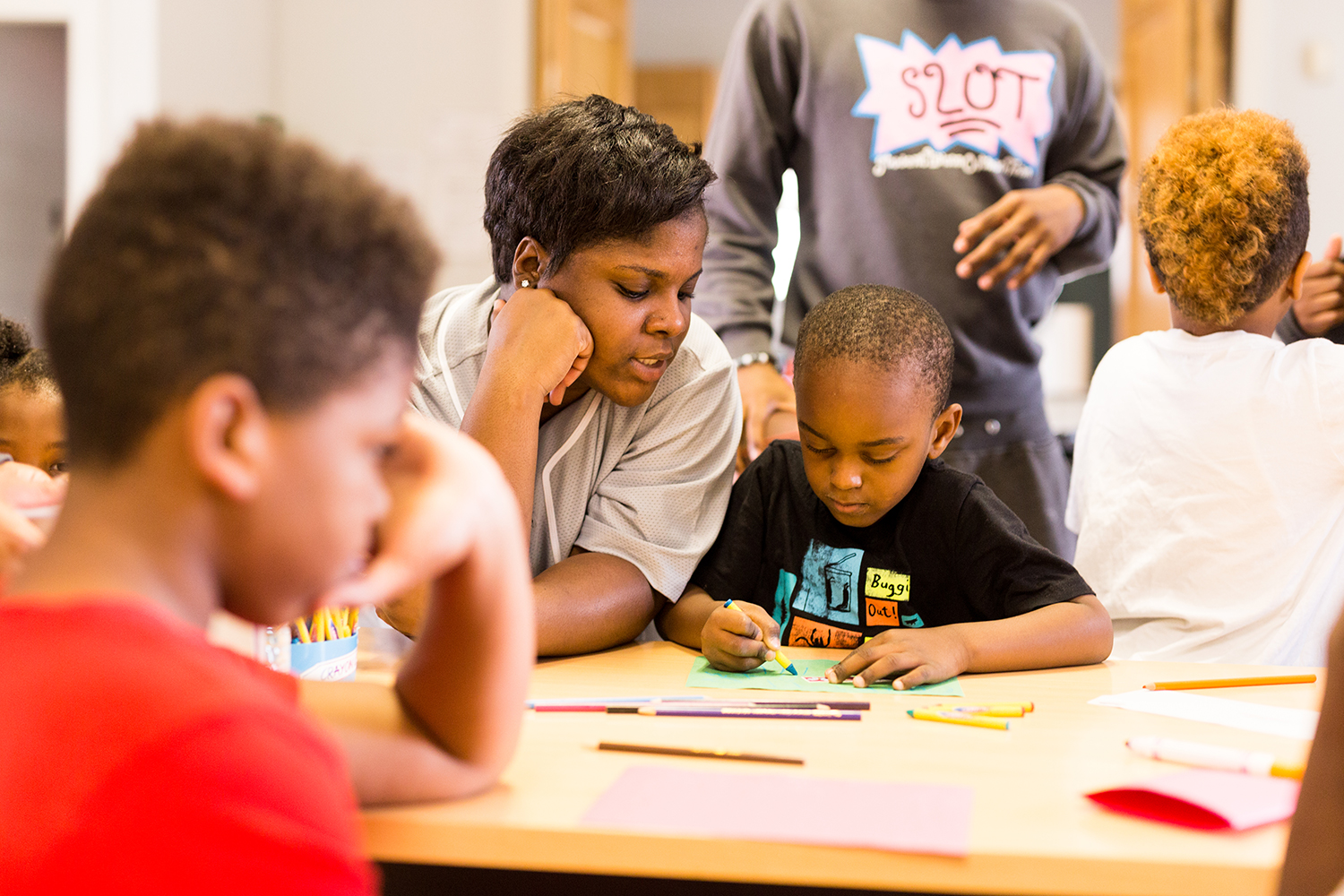
JRF Grantee “STORY” Lifts Families Out of Poverty
July 12, 2017 9:35 am

A young STORY participant colors and talks to a mentor while the rest of the students arrive at Saturday Mentoring.
Two kids run past my car and up the steps into the Thomas Rolfe Community Center. Inside, they join a handful of other children coloring around a table. Evans, a mentor sitting at the table, looks up with a warm smile. After introducing himself, he returns his attention to the kids.
Southside Transformational Opportunities for Residents and Youth (STORY) Executive Director, Kathryn Thompson, gathers kickballs out of the closet and sweeps a couple spots on the floor while a few more kids arrive. Finally, Evans and the other volunteers from Virginia State University’s Student Leadership Outreach Team (SLOT) get the kids attention to go over today’s lesson: giving back. It’s a typical scene as Saturday Mentoring gets started.
STORY is a new John Randolph Foundation grantee. They’re also a fairly new nonprofit, but mentoring is only part of STORY’s outreach. Their main focus with kids in the area is the ML2 program. ML2 stands for math, literacy and leadership, and it’s an after school session Monday through Thursday in the Thomas Rolfe Community. In the future, they hope to expand this program, offering it to other government subsidized neighborhoods. I had the opportunity to connect with Kathryn about ML2 and why STORY is so important.
“After school programs, most especially in low-income neighborhoods, provide children with a safe environment to do their homework. The program is providing a routine in which children are accustomed to coming in, completing homework and having assistance from staff. Education is the only way to break the cycle of poverty [because] many low-income persons do not complete high school and find themselves trapped in minimum wage employment.” *
And that’s exactly what STORY aims to do: break the cycle of poverty, and their definition of education goes beyond core classroom subjects. They inspire their students through exposure to life beyond their housing community. Field trips to the Children’s Museum of Richmond and Washington D.C. are educational and fun for the kids while showing them that education is the ticket to a broader life once they graduate. It’s through things like ML2, mentoring, and exposure that Kathryn hopes to lift not just one student, but entire families out of poverty.

A volunteer mentor helps a STORY student make a thank you card to give back.
“It troubles me [when] my participants are related. I have siblings and cousins as participants across the board. That means entire families are in one or more public housing communities. The children see poverty every day. They live poverty every day…. I want them to see what is opposite poverty. I want them to see what is outside of Hopewell and Petersburg. I want them to speak correct grammar and conquer fractions. Many adults in the community realize these youth need help and someone has to help them. I know later in life they will remember me and everyone else that came alongside them to ensure they got an education.” *
As mentoring wraps up, the children sit with their mentors making thank you cards for people who have helped them, like their moms and teachers, as a way to give back. They talk to their mentors about what they want to be when they grow up, and how they can give back once they achieve their goals. The mentors respond with advice, steering the kids toward completing their education to improve their chances of success. We can’t wait to see how these kids make an impact thanks to STORY.
Tags: Grants, Hopewell, Nonprofit, Partnership, Philanthropy, SLOT, Southside Transformational Opportunities for Residents and Youth, STORY, Virginia State University, Youth DevelopmentCategorised in:
This post was written by AJ James
Comments are closed here.